By Billy Rosenbeck
[I]t’s the wee hours of Sunday morning, and Tory Hanna is pushing his wife’s floral shop’s mini-van west on I-90, past the fading neon lights of Worcester’s Auburn Mall. The van is full with the Whiskey Treaty Roadshow, who Tory chauffeurs back from Boston to their cars and homes, stationed intermittently through the Western edge of the state.
In the passenger seat, Billy Keane fiddles with an iPod, eventually settling the speakers on Tom Waits’s Bad As Me. This wakes up Greg Smith, who has been near silent amongst stacks of equipment at the rear of the van, but Greg is now lively and excited, a departure from his cerebral, discerning off-stage affect. Greg is willing to talk the finer points of Waits, regardless of the hour. Between them, Chris Merenda chimes in and sings along, as he divides the earnings from a humbling Saturday night gig.
At the Foundation Room, the band played to the sparsest of crowds, comprised primarily of Dave Tanklefsky’s parents and an Indian couple that spilled over from an adjacent birthday party to request “La Bamba.” Now split up, the money from the door scarcely covers the White Russian Tory ordered at lunch (though it should be noted that the White Russian was grossly overpriced). The humor–which borders on schadenfreude–is lost on no one, and Chris lets out a baritone belly laugh, asking that no one tell his wife that he was gone all day for $14.
I am next to Chris on a bench seat in the middle of the van. Exit 7 draws closer, and I run my hands over my pockets and rifle through my backpack, making sure I haven’t forgotten anything.
Two days ago, Dave Tanklefsky picked me up at a Park-N-Ride behind a McDonalds in Ludlow, Massachusetts, and since then, I’ve spent every waking moment with the Whiskey Treaty Roadshow. It’s been a dizzying weekend of rehearsals, gigs, radio spots, documentary premieres, Pabst Blue Ribbon, winding back country roads, and endless interstates stretching from one end of the state to the other, then back again. The pace is rapid, and more than once, the weekend is likened to the original four-day-tour-turned-award-winning-documentary that made five separate singer-songwriters realize they’d stumbled upon something bigger than themselves.
Surrounded by the comfortable din of Waits’s graveled croon, there’s a collective exhale, a natural post-show decompression. But there must be relief, too: this has been the busiest stretch since the band’s incarnation, a full slate of music and revelry that’s part victory lap and part Eastern expanse. It’s glamorous, in its distinct lack of glamour; it’s the life of an unsigned outfit, which is part hobby and part dream job, squeezed between the actual jobs that make this project more difficult than anyone would like.
Beyond music, Tory is back in grad school, after a stint as the City Planner in Pittsfield, Massachusetts. Billy is a realtor, though he’s set to start classes at Juilliard. Dave is a journalist and broadcaster, play-by-play being his other love to music. Chis Merenda is a banjo teacher and self-sustainable farmer, though he toured the world as the drummer for the Mammals in years past. Greg has held jobs from moving companies to geology fieldwork, managing to play more shows than almost anyone else along the way.
In and out of the band, things are busy and getting busier, which is difficult. But what makes this project easy is that the talent exists in such excess that it spills off the stage.
On Saturday morning’s Dunkin’ Donuts run, Tory and I discuss a forthcoming LP. There’s room for six songs, but we list ten in a breath. Tory is childishly energetic–even more so than he is about most things–and the excitement of recording any of the songs outweighs the pain of making cuts. We talk about it for a half an hour, make no progress, and eventually get diverted. It’s not the first time the conversation has lived and died without definitive decisions being made.
It’s a good problem to have, really, and once you’re around the Whiskey Treaty Roadshow talent exceeding time and space becomes increasingly familiar. There’s so many frontmen with so many songs, so many voices, so many solos, so much to say that the full breadth of what they do is hard pressed to fit into a set. On any given night, everyone gets to play three to five of their songs, and fifteen or so that belong to someone else, but as far as I can tell, no one seems to mind.
The members of the Treaty admired one another before ever deciding to join together, and that admiration continues: on stage, Billy Keane unabashedly calls Chris Merenda “one of his favorite songwriters of all time,” and there are no shortage of such compliments bouncing around the van or in the green room before the show.
Their merit–individual and as a group–makes it illogical to not cut out of work early on Friday, and spend the rest of the weekend caravanning across the state, only to return road-down and bleary-eyed on Monday morning; it seems illogical that no one thought of this sooner.
But Saturday night at Boston’s Foundation Room is fucking thankless.
On Saturday morning, a backing band dropped out, and the headliner called to ask if the Whiskey Treaty would move their 8 PM set to 11. She was worried the full-band would drown out her solo acoustic set, and her concern is warranted: that night, the Whiskey Treaty is raucous and freewheeling. Their foot stomps and hand claps crash into three-part harmonies, and they shake the names of other acts from any available ears.
The band agrees to move back, and after a 1 o’clock radio spot at a difficult-to-find UMass Boston studio, there’s still five hours before sound check; by the time they take the stage, the original crowd dwindles, and there’s a 1:1 performer-to-patron radio. It’s a far cry from the previous night at Dottie’s Coffee Shop in Pittsfield, where the Roadshow premiered the documentary to their hometown crowd, then played a sold-out set that was shut down early.
An hour before the show was scheduled to end, the Fire Marshal happened down the street, saw the building bulging beyond capacity, and insisted the plug be pulled. With the extra hour, the celebration spilled from Dottie’s to Methusala, a bar named a few blocks away named after the Greek myth of the world’s oldest women. At an indoor-picnic table, drinks led to an arm wrestling tournament, and the arm wrestling tournament led to fits of laughter before a clear winner was decided. Eventually, the night puttered out on air mattresses and pullout couches in a sleepover at Billy Keane’s house, full up with wives, girlfriends, siblings, and friends–the extended Whiskey Treaty family.
Before coffee the next morning, the celebration began again when an e-mail woke up documentary director Tim Bradley. He sped down a flight of stairs half-clothed, saying, “I’ve got such good news that I couldn’t put my pants on,” as flopped down next to Dave.
The e-mail was from the SENE Film, Music, and Arts Festival: the documentary won the Audience Award for “Best Short Documentary,” where it’d already earned a Jury Award for “Best Regional Documentary.”
Half-a-day later, with the accolade already spread across social media, there’s every reason to mail in the Boston set, run up the band tab, turn around, and go home. I hope they do, since I’ve also got work Monday, and teaching The Picture of Dorian Gray is more palatable if I’m home before sunrise.
But they approach the set with hellfire.
They are tighter than the night before, equally as energetic, shockingly self-assured in the face of a near-empty barroom.
It’s two hours of rotating vocals, swapped guitars, and the once-singular songs that are becoming the property of the group. They pour hill town roots through the open balcony doors onto an unsuspecting Lansdowne Street, giving Boston Proper the chance to get in on a Western Massachusetts’s secret on the ground floor.
The room is too small to hold this sound, this project, or these personalities for long.
And then it’s 2 AM, and Tom Waitts is playing, and Greg is excited, and Tory is driving, and Chris is joking, and Billy is laughing, and Dave is back in Cambridge, and I look around, and see that I am riding in a minivan with the Undiscovered Traveling Wilburys.
This is a super group, devoid of fanfare.
The first time I met anyone in the Whiskey Treaty Roadshow was at Greg Smith’s house in Buckland, Massachusetts: Greg and his wife had just moved in two days earlier, following Greg’s ten-year spell in Brooklyn. Now, on a particularly sunny early March afternoon, Greg’s new home is half-unpacked, but full with the sound of rehearsal.
Greg is the most recent returnee to Western Massachusetts, but at varying points, everyone in the Whiskey Treaty took residence in New York, eventually finding their way back to towns like Buckland, Shelburne, and Charlemont, which are hard to find, even with the help of GPS.
Buckland has a population of less than 1800, and is probably best known for being the highest point on I-90 east of Oacoma, South Dakota, standing 1,724 feet above sea level. The day I show up, Buckland and its neighboring towns are still snow-covered and Rockwellian, and I’m told to take a right just after a weathered red barn down the hill from Greg’s house. When we drive later on the way to a show, Tory says the barn was his childhood’s dentist’s office.
Western Mass. is a world away from New York City; it’s a world away from what that city can mean to a twenty-something music maker. Western Mass is insular and stands alone, with necessity-based pride, since no one from Boston recognizes anywhere west of Worcester as part of the state, and no one from New York recognizes anywhere.
Despite it’s point of interest on I-90, highways elude Buckland. There’s no direct route to the town, and national touring acts pass by on their way from Boston to New York into the rest of the country without a thought of the music that’s being feverishly pumped out of Greg Smith’s sun room. Some of these acts stop in Northampton for a night; occasionally, there’s a big draw to Tanglewood outside of James Taylor’s standing mid-summer concert, but mostly in Western Mass., local scenes are celebrated, but stay local–maybe because of geography, or maybe not.
“There’s a lot of music up here, but it’s not like New York,” says Susie Hanna, Tory’s wife, with a laugh. Susie was largely the catalyst for the formation of the Whiskey Treaty, having brought five separate acts together for the Whiskey Treaty Festival of Music, Brotherhood, and Fine Spirits in 2012, which ran two years in Greenfield.
In New York, Tory had a residence at Pete’s Candy Store, a dimly-lit, shoulder-wide Williamsburg club. Tory–who Susie calls “the ultimate collaborator”–invited the city’s Western Mass. transplants to play alongside him, which inspired the first Whiskey Treaty Festival, where Greg Smith and the Broken English, Billy Keane and the Misdemeanor Outlaws, and Tory Hanna and the Pondsiders shared the stage. Dave Tanklefsy joined in the second year of the festival, and Chris Merenda came along after the festival was no more, once Abe Loomis (of Bright Lines) decided to transition out of the Roadshow.
Between the music, brotherhood, and spirits, the festival was a celebration of Western Mass.’s artists, tapping into area talent that Susie felt hadn’t been properly tapped.
“I [got] on stage at the end of the last festival, because I just wanted to thank everybody, to hit home why we were doing this,” Susie tells me as we sit in Greg’s kitchen, Dave Tanklefsky’s airy “River” punctuating the conversation. “I talked about how wonderful Western Mass. is, how talented these musicians are, and how the whole point was to highlight them and support them, but also to support each other, to support the good people of Western Mass.”
“There’s some major talent here–painters and athletes, marathon runners–I was just shouting out people. This is a wonderful area, and we were there to celebrate that. ”
Both years of the festival, Tory’s childhood best friend Tim Bradley was in the audience. Tim works in corporate video production, but had been looking for a passion project. When he heard the frontmen of the Whiskey Treaty Festival were going on the road for a few nights as “The Whiskey Treaty Roadshow,” he approached the Hanna’s about brining a video crew, and turning that tour into a documentary.
In July of 2014, the four-day caravan across the state began. Days were spent on interviews and video shoots, and shows followed every night. It was a rolling party, heavy on good times, light on sleep, and resulted in a documentary that’s been worthy of entrance to thirteen national film festivals, winning “Best Short Doc” three times.
Stream the documentary in full below:
*Since filming, Abe Loomis has transitioned out of the project to focus on his band Bright Lines. Chris Merenda (formerly of the Mammals) is now the band’s full-time banjo player.
“The film encompasses everything I was feeling about what the Whiskey Treaty means, the whole purpose of why I put the festival together in the first place,” says Susie. “Tim put my feelings on film.”
In every way, Tim and Susie equal the talent of the Roadshow, just as much members as anyone on stage. The two are classically behind the scenes, and have been acting as a makeshift management team over the last eighteen months. Tim’s creativity shines at every documentary screening, even though he doesn’t appear to love the follow up Q&A. He is tireless at shows, never putting his camera away, twisting and turning his body for every angle, point of view, and story his lens can tell.
Susie is much the same, with a vision all her own. Beyond having a background in event planning, her Daisy Stone Studios produces breathtaking floral arrangements that have created demand for her services all over New York and New England–another person who operates on a schedule where time evaporates faster than responsibility.
Susie calls the project “an ode to where we grew up,” and from top to bottom, that’s true. From those setting up screens or doing sound or playing guitar, it’s been grown and cultivated in the foothills of Berkshire and Franklin counties. That influence takes the stage, and has stamped songwriters who now pay it back. Greg Smith gets at this as poignantly as anyone, and he leads the doc with “Oak and Ashes,” a song he wrote in advance of the first Whiskey Treaty Festival, but recorded with his New York Outfit, the Broken English, before his return home: The heartbeat of the land hits me harder than the city can/With sticks and stones I’m gonna build my home, then I’m gonna take my stand.
“They’re serious Western Mass boys,” says Susie with sweet sincerity. “There’s just something about people who grew up here.”
I can’t disagree with her, because I grew up here, and we all want to believe that wherever we grew up is special, that there’s something in “our” people that can’t quite be found anywhere else. Really, I’m from an hour south of the Whiskey Treaty, growing up in and outside of Springfield, a city known more in recent years for it’s crime and casino proposals than for the big skies and hand-painted landscapes captured in the doc. Admittedly, I didn’t know where Buckland was before getting there, but they don’t know where Wilbraham is until I tell them about it, and therein lies our shared experience.
There’s something about forgotten towns that galvanize your pride in being off the beaten path, and off the beaten path has always been where the best folk music lives.
At a certain level, my affection for the Whiskey Treaty Roadshow must come from the common language of our region, that they are telling me something I already believe, or want to believe. But when I look into the rehearsal from my spot kitchen, I don’t see how this won’t work. I can’t envision a scenario where soulful, textured, freewheeling Americana doesn’t translate elsewhere. There’s something significant here that I know isn’t my creation, and if it wasn’t me, someone else would be writing this story, saying what I’m saying now: soon, this band will climb down from the Berkshire mountains and storm down the east coast, because they are real, and the music demands to be listened to.
Two hundreds miles from New York City, Greg Smith’s house is half-unpacked house, the scent of Brooklyn still hanging in his flannel; Susie Hanna, who he’s known since grade school, is sitting in his kitchen, before she leaves to deliver tickets for her husband’s band. She says that Greg’s had a rock star persona as long as she can remember, well before he, like the rest of the band, left home for New York to chase musical dreams.
But it’s in Buckland that the quintet has their most tangible shot at success in any of their respective careers. It’s more palpable and realistic here than it ever was in New York, which is a credit to the collection of talent, to the personalities, and to their slot on the edge of the state.
After the rehearsal, they strike out to the Iron Horse in Northampton, and cement the benefit of putting five heads together. The set is delivered without a lull: Dave Tanklefsky is surgical on his electric guitar, mixing it with steady audience claps on “Four Years.” Tory learned to sing in a church, and puts that voice to use while he bounces across the stage with a foot tambourine on “Wild Wide Open Spaces.” Greg plays like he wants to break his guitar on “Poisonous Me”–it’s the first time I come to think of him as an earthy Dave Grohl, which he’ll reaffirm over the next weeks and months. To end the night, as they do every night, Billy Keane–who is the Dylan of the Berkshires–delivers the band’s anthem, the talk-sung “Leave Your Light On,” a song that is as fun as live music can be.
A few weeks later, Chris Merenda fills in the spot left by Abe, plucking his banjo with a clawed hand, singing eccentric heartbreakers like “Fall Into Place,” and giving the band something they didn’t have before.
It’s a musical farmer’s market, where the freshest product is delivered by green thumbs without pomp or circumstance. The benefit of five frontmen is obvious, but the selflessness in these five frontmen is where the project finds it footing. Selflessness is the ethos, and collaboration is the best chance to expand outward, for the Whiskey Treaty Roadshow to realize itself as a national touring act.
I’ve been away for the summer, and the first time I see the Whiskey Treaty again is at the Shire City Sessions, a free concert series set in a parking lot next to a church-turned-artist-sanctuary in Pittsfield.
Rain threatens all morning, but clears, and the night gives the inaugural feeling of fall. I bring my little sister along with me, since this is more for fun than for journalism, and she is who I most often bounce my musical tastes off of, so tosee if they’re misguided or not. (She confirms: they are not.)
We walk across the parking lot, familiar faces set across the early-crowd, while openers the Novel Ideas sound check.
Tory is quick with hugs, and invites us to a family party within minutes, as he is known to do. Once, he told me he “wanted me to meet his mom,” which I was sure was a joke, until I got to know him. When we separate, I explain to my sister that the invitation was sincere–he is, in fact, that friendly.
Dave has a new hat, and Billy got rid of his man-bun before it became uncool to have a man-bun (because Billy Keane is impossibly cool), but everything else is pretty much the same.
Except that tonight the set is being recorded for a live album and concert film.
When the sun sets, Tim is back behind a camera, and the band takes their rightful places on the stage. Susie is in the middle of the crowd, singing, smiling, dancing, her vision playing out in front of her more extensively than she’d ever thought possible.
Amongst a growing but manageable crowd, my sister and I stand a few feet from the stage, right in the heart of things, in the spot where the music hits just right. Eventually, though, our glasses get empty and our bladders get full, and we momentarily retreat.
When we return, the imprint of our spot has been filled in, and the next ten minutes are spent sliding through available space, weaseling our way up, avoiding a man who seems homeless and dances like he’s been enjoyed all the free Hudson Whiskey samples available at the front of the stage. Anywhere but a few feet away is too far, and my sister agrees: soon, the fight to get that close will be an impossible task.
At least that’s what I believe.
But if it never happens, if these guys never “make it,” we’ll still spend our nights in coming years a few feet from the stage. If they live and die as local legends, that’s okay, because this is Western Mass., and our local matters.There’s something special about this place, and the people that grew up here, and the band that came to represent that.
But they will make it, because they don’t care if they make it; “making it” was never a contingency.
One night, in a thankless, empty barroom in Boston (the idea that this article could ever be published fading away) Billy Keane speaks frankly.
“I’ve done some drugs in my day,” he says. “But the only one I’ve ever been addicted to is playing music.”


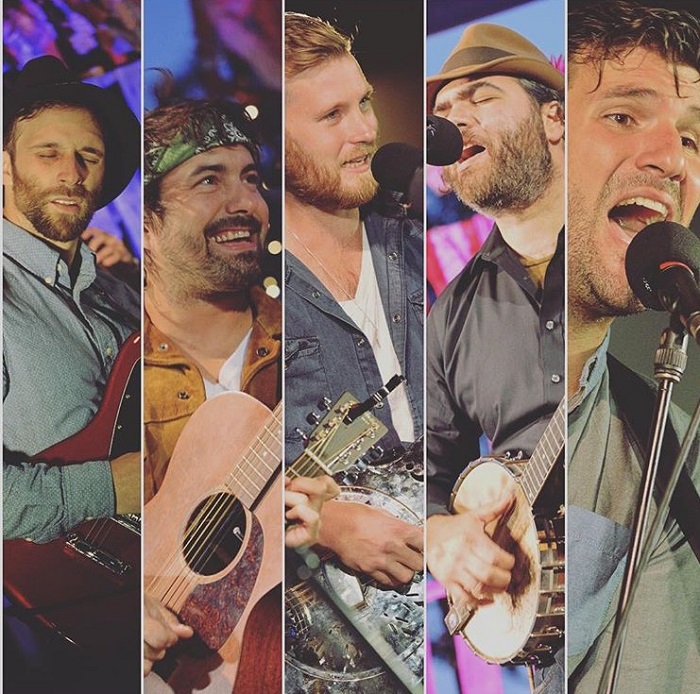
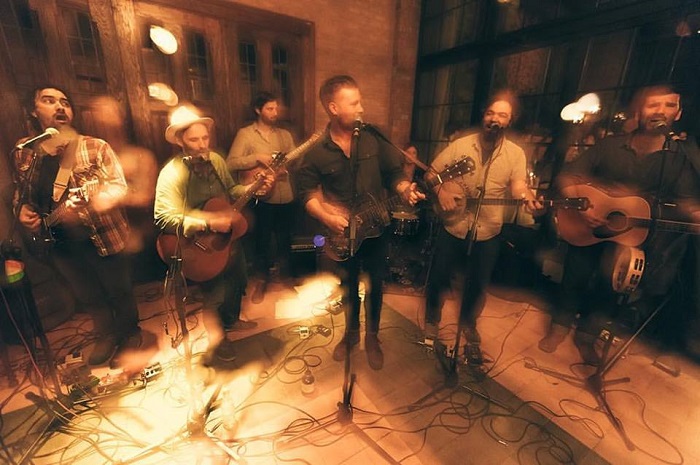
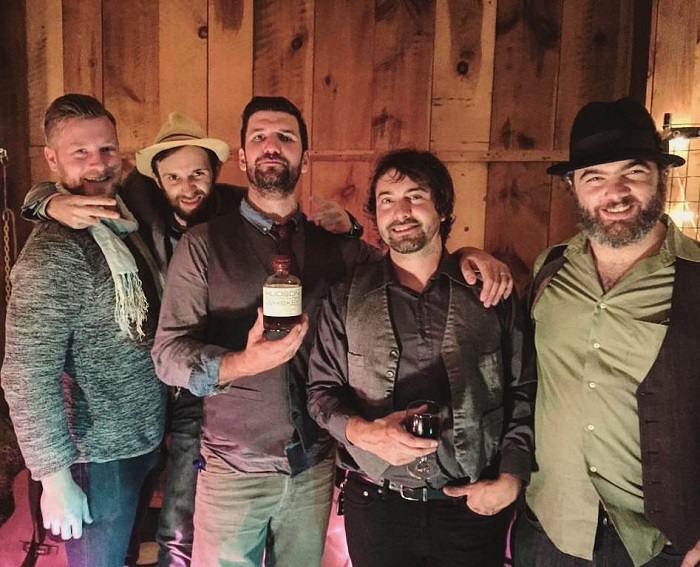
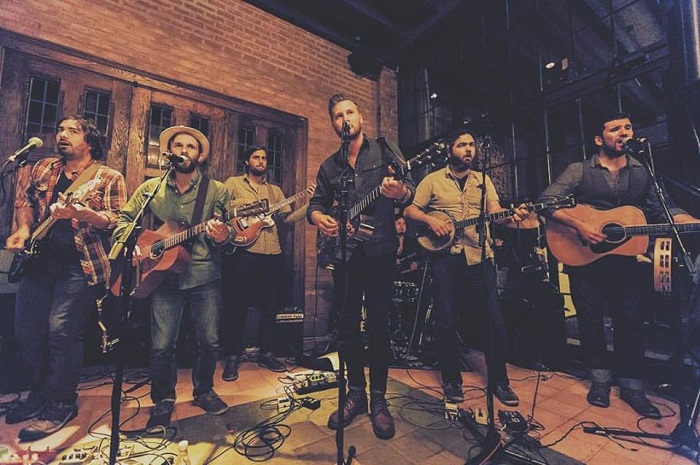
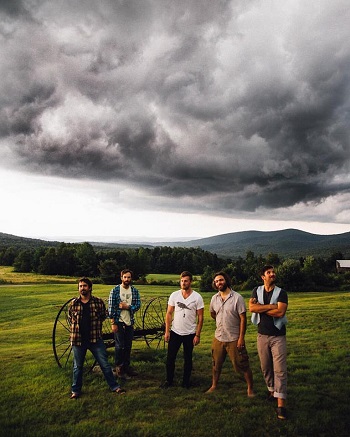
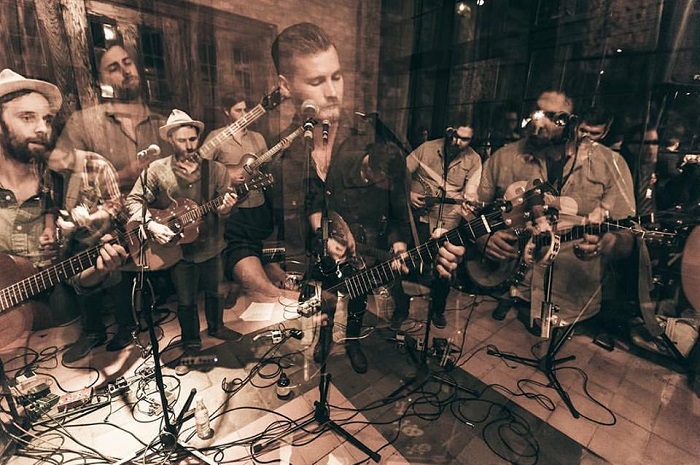
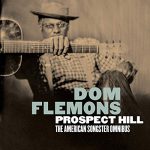
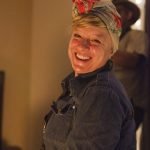
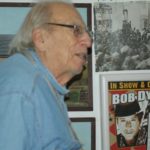
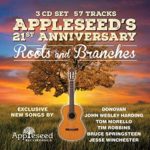

The Whiskey Treaty Roadshow is the real deal! Great documentary.
What a well written article Mr. Rosenbeck. It wet my thirst for some more Whisky Treaty!
Love it Rosé